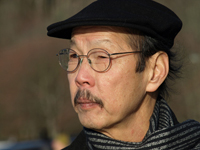

He chose Francis as his papal name in honor of Saint Francis of Assisi. Following the resignation of Pope Benedict XVI on 28 February 2013, a papal conclave elected Bergoglio as his successor on 13 March. The administrations of Néstor Kirchner and Cristina Fernández de Kirchner considered him to be a political rival. He led the Argentine Church during the December 2001 riots in Argentina. He became the Archbishop of Buenos Aires in 1998 and was created a cardinal in 2001 by Pope John Paul II. He was ordained a Catholic priest in 1969, and from 1973 to 1979 was the Jesuit provincial superior in Argentina. After recovering from a severe illness of pneumonia and cysts, he was inspired to join the Jesuits in 1958. Francis is the first pope to be a member of the Society of Jesus (Jesuits), the first from the Americas, the first from the Southern Hemisphere, and the first pope born or raised outside Europe since the 8th century papacy of Syrian pope Gregory III.īorn in Buenos Aires, Argentina, Bergoglio worked for a time as a bouncer and a janitor as a young man before training to be a chemist and working as a technician in a food science laboratory. Pope Francis ( Latin: Franciscus Italian: Francesco Spanish: Francisco born Jorge Mario Bergoglio on 17 December 1936) is the head of the Catholic Church, the bishop of Rome and sovereign of the Vatican City State. More recently, Francis has led high impact hydroclimate and water modelling initiatives and water resources assessments in Australia, and collaborative projects and consultancies in South Asia, China and South America.Bishops consecrated by Pope Francis as principal consecrator Francis and his group are also active in converting research outcomes into modelling tools and guidelines for the water industry.

Francis collaborates and engages strongly with universities, government and industry, and the research that Francis and his team does has a direct path to impact guiding water resources planning and adaptation in Australia and globally.įrancis is a member of several global and national water expert committees including lead author of the IPCC AR5 and AR6 Assessment Reports. His research is widely adopted and cited (more than 20,000 Google Scholar citations and h-index of 71). Francis has received various awards including the Volker Medal from the International Association of Hydrological Sciences and UNESCO for outstanding contributions to hydrology, particularly the application of research for the benefit of society. In the past ten years, Francis has led 30-40 hydrologists working on water resources assessment, hydrological forecasting and prediction, climate change adaptation, and integrated basin management, in projects totalling more than AUD$10m per year.įrancis is highly regarded internationally for his specialist expertise in hydroclimate and water resources and inter-disciplinary research. Francis joined CSIRO as a Science Leader in Canberra in 2006, after a 15-year academic career at the University of Melbourne. Dr Francis Chiew has 30 years of experience in research, teaching and consulting, and in science leadership and people and project management.


 0 kommentar(er)
0 kommentar(er)
